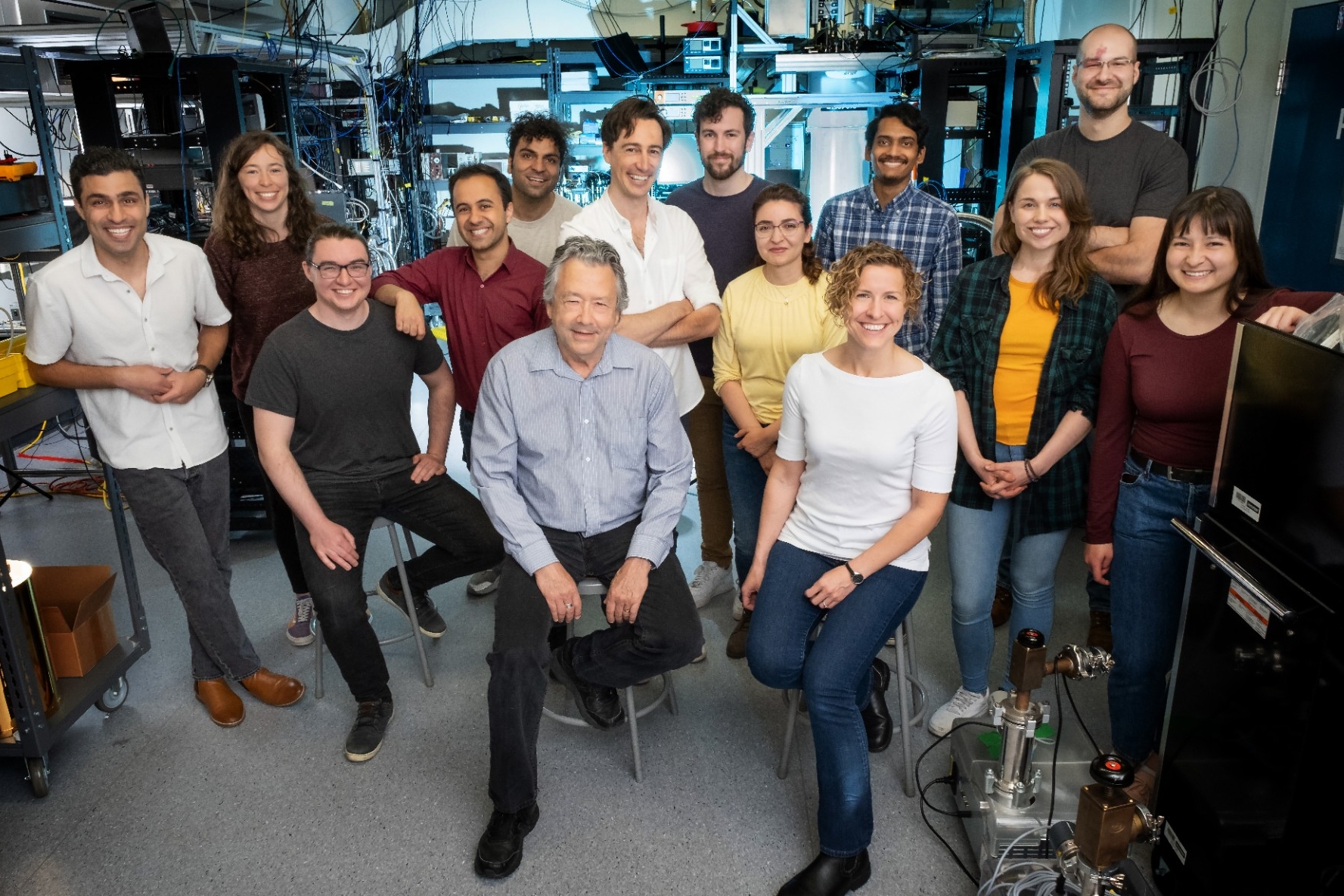UNIVERSITY RESEARCH NEWS — Researchers at the Simon Fraser University report on research, published in Nature today, that they say could pave the way toward an all-silicon quantum internet and quantum computers that can tackle real-world computational challenges. That internet theoretically will be much more secure and much more powerful than today’s version.
In the study, the scientists describe their observations of silicon ‘T centre’ photon-spin qubits, an important milestone that unlocks immediate opportunities to construct massively scalable quantum computers and the quantum internet that will connect them.
Quantum computing has enormous potential to provide computing power well beyond the capabilities of today’s supercomputers, which could enable advances in many other fields, including chemistry, materials science, medicine and cybersecurity. In order to make this a reality, it is necessary to produce both stable, long-lived qubits that provide processing power, as well as the communications technology that enables these qubits to link together at scale.
Past research has indicated that silicon can produce some of the most stable and long-lived qubits in the industry. Now the research published by Daniel Higginbottom, Alex Kurkjian, and co-authors provides proof of principle that T centres, a specific luminescent defect in silicon, can provide a ‘photonic link’ between qubits.

This comes out of the SFU Silicon Quantum Technology Lab in SFU’s Physics Department, co-led by Stephanie Simmons, Canada Research Chair in Silicon Quantum Technologies and Michael Thewalt, Professor Emeritus. “This work is the first measurement of single T centres in isolation, and actually, the first measurement of any single spin in silicon to be performed with only optical measurements,” says Stephanie Simmons.
“An emitter like the T centre that combines high-performance spin qubits and optical photon generation is ideal to make scalable, distributed, quantum computers, because they can handle the processing and the communications together, rather than needing to interface two different quantum technologies, one for processing and one for communications,” Simmons says.

In addition, T centres have the advantage of emitting light at the same wavelength that today’s metropolitan fibre communications and telecom networking equipment use. “With T centres, you can build quantum processors that inherently communicate with other processors,” Simmons says. “When your silicon qubit can communicate by emitting photons (light) in the same band used in data centres and fiber networks, you get these same benefits for connecting the millions of qubits needed for quantum computing.”
Developing quantum technology using silicon provides opportunities to rapidly scale quantum computing. The global semiconductor industry is already able to inexpensively manufacture silicon computer chips at scale, with a staggering degree of precision. This technology forms the backbone of modern computing and networking, from smartphones to the world’s most powerful supercomputers.
“By finding a way to create quantum computing processors in silicon, you can take advantage of all of the years of development, knowledge, and infrastructure used to manufacture conventional computers, rather than creating a whole new industry for quantum manufacturing,” Simmons says. “This represents an almost insurmountable competitive advantage in the international race for a quantum computer.”
Source: Simon Fraser University
If you found this article to be informative, you can explore more current quantum news here, exclusives, interviews, and podcasts.
















